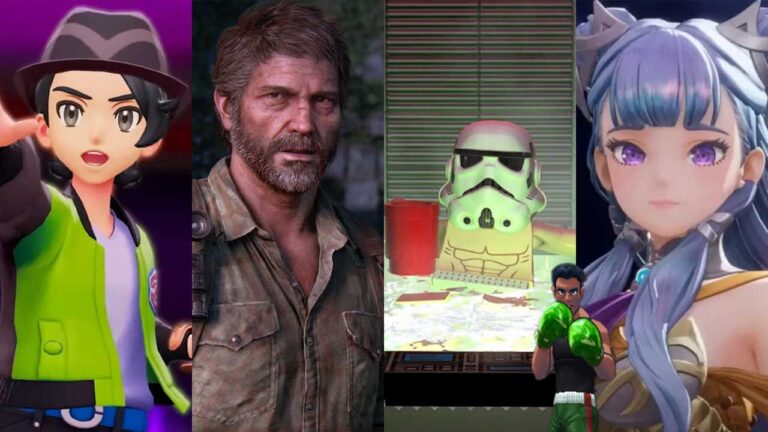

Alien: Earth’s fourth episode, “Observation,” is another aptly titled entry for the franchise’s first foray into the small screen. Showrunner Noah Hawley and friends pump the brakes on the xenomorph-forward action in and around the crash-landed Maginot to take stock of the situation. If the series is an experiment in storytelling within the world of Alien, this is the stage where you sit back and examine the results of the variables you’ve employed so far. It’s what Kirsh and the rest of Prodigy’s scientist are doing on screen, but as a chapter, “Observation” is doing it on a meta level, while also pivoting hard into questions about the nature of the Lost Boys and dropping the season’s strangest (and potentially most divisive) story point.
Spoilers follow for Alien: Earth Episode 4 – “Observation”
This is a new situation for the franchise to find itself in, flush with time to ponder. As a story with eight hours to be told, Alien: Earth is making use of some downtime by checking back into where this whole thing started – porting kids into synthetic, adult-sized bodies. The episode calls this out explicitly, with Arthur laying the stakes out clearly to Dame Sylvia: “If we did this wrong, best case, we’ve got a bunch of AIs running around thinking they’re human. Worst case… we killed six kids.”
It’s a heavy question to drop in a transitional episode of a season, one with enough gravity for the entire season to orbit around. But it’s one that Hawley and co also seem intent on answering plainly with the rest of “Observation.” The fourth chapter of Alien: Earth repeatedly presents two opposing arguments as to whether the Lost Boys are truly the kids in new bodies, or just a reasonable facsimile. But “Observation” just as frequently offers a pretty concrete answer to the questions it raises which sort of defeats the purpose of raising interesting questions to begin with.
It starts with the visuals employed in this episode. We’ve been on Neverland, the island base of operations for Prodigy, Boy Kavelier and his most important research, but not often outside of its laboratory walls and offices. Seeing the lush nature of the Southeast Asian island, with gorgeous landscapes befitting a resort and spa more than a shady corporate installation, juxtaposed with the technology at play is always a good look. Alex Garland’s Ex Machina did the same thing to great effect. There’s no better setting than raw nature to poke at the question of our own human nature.
So for Sylvia and Arthur to have their pivotal conversations outside of the lab and in a secluded area of jungle only adds to the weight of the question at hand. The same is true for Slightly getting his first “phone call” (for lack of a better word) from Morrow, another moment that shows the series’ intention is for the Lost Boys to really be the children and not some Frankenstein’d other thing. There is a shorthand to the threats Morrow makes against Slightly’s family, a language of cinema that, to my mind, translates easily to “this is Aarush, not Slightly.”
Meanwhile, poised to be the Grogu of the Alien franchise, our favorite eyeball octopus specimen gets a chance to shine that doubles as more evidence in favor of “it’s really the kids in these robot bodies.” Firstly, watching the Eye-ctopus (can I trademark that?) take over a sheep is one of the gnarliest moments ever put on screen in an Alien project. The number of ways a xenomorph can fuck somebody up is, after all, finite. “Underwater” in Alien: Resurrection and “in zero-g” in Romulus didn’t prove to be game changes so it’s a blast to see another interesting specimen all together do its thing. What’s even cooler is to see a thematically aligned specimen do its thing.
There’s a question of autonomy at play with this particular creature, playing on the same fears that zombies and body horror tap into: that we might suddenly be out of control of ourselves as another force takes the wheel. Boy Kavalier becomes so interested in the Eye-ctopus, and immediately accepts that its nature has not changed once it’s taken over the sheep’s body. The Eye-ctopus (Gross-gu maybe…) in this sense is kind of the same as Kavalier’s experimental hybrids; one entity retaining its nature in a different host body. The only difference is, the Boy Genius seems to understand his own creations less. He’s either less confident in the results of his work (which seems unlikely given everything else we know about Kavalier) or he thinks so little of the children used in his experiments he doesn’t consider their humanity.
If this is the case, it’s a classic fatal flaw arrogant characters like Boy Kavalier have struggled with since that one guy with wax wings flew too high on too hot a day. If that makes Prodigy’s founder seem stock, I would argue this ‘tale as old as time’ is actually a strength for Alien: Earth. Familiar tropes in a familiar franchise with fresh ingredients is typically a recipe for success, and “Observation” is excelling in that department even if it wastes a little of the season’s momentum by stopping to ponder these sorts of things.
The biggest moment in this episode, though, is also potentially the most divisive point in the series. Wendy (or Marcy, as I believe to be the case) is a xenomorph whisperer. Had the groundwork for this revelation not been meticulously laid for a few weeks now, I might have rolled my eyes harder at it. For the record, I’m not super concerned with whether or not this changes any foundational lore for the franchise, or by how much. We’ve rarely spent enough time with xenomorphs for the filmmakers to bother pulling on this thread, but there is precedent: the Queen in Aliens is clearly communicating with the drones when Ripley confronts her with a flamethrower, as she’s clearly telling them to back off so the eggs don’t get roasted. So there it is, if you really need an evidence-based argument for this piece of science fiction.
For me though, and the reason I’m fully on board with it, the direct communication between Marcy and the xeno further connects them. They’re both creatures inhabiting different forms than where they started. They were incapable of surviving without a host body to house their gestation, and now the goopy half-cobra, half-nuzzling cat form of H.R. Giger’s brainchild represents the same stage of development Marcy is in as Wendy. That they can potentially speak to each other not only makes sense in that way, but it’s also necessary for telling this story. But most importantly, it’s a perfect segue into…
Credit Roll Needle Drop Check In
“Observation” wraps up with a cooing Wendy and baby xenomorph whispering… something… to each other while Jane’s Addiction’s “Ocean Size” comes in, at first with a gentle acoustic cadence before Perry Farrell’s scratchy count-in brings a much heavier tone.
I wish I was Ocean size, they cannot move you, man, no one tries
No one pulls you out from your hole, like a tooth aching a jawbone
For Alien: Earth, these lyrics are about being a kid on the cusp of growing up, standing on the doorstep to whatever their next step might be. But there’s a longing to be independent, to have earned the respect of others and not be used or treated like a burden. They’re lyrics speaking directly for Wendy (Marcy) in this snake-charming moment with the young, freshly-lung-burst xenomorph. She’s discovering that she is of consequence, she can contribute and there’s a deeper well of potential that she’s becoming aware of.
Powered by WPeMatico





